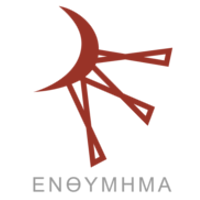Weaving Intersectional Rhetoric: The Digital Counternarratives of Indigenous Feminist Bloggers
DOI:
https://doi.org/10.13130/2037-2426/8979Аннотация
Indigenous feminist bloggers weave an intersectional, rhetorical story that lances the core of American popular culture and misinformed imaginations. The Native American women bloggers introduced in this essay are unknown to most non-Native Americans, most rhetoric scholars, and most feminists, but should be on our radar because of their refusal to be constrained by colonialist binaries, single rhetorical forms, or imposed boundedness to the margins. These Indigenous feminists practice in the digital space to reinforce and reclaim rhetorical sovereignty as an outcome for themselves and their communities. Once the weaving is complete, the resultant warmth of rhetorical sovereignty provides some protection from the cold colonial stories of erasure and absence.Скачивания
Библиографические ссылки
Anderson, Kim. 2010. “Affirmations of an Indigenous Feminist.” Indigenous Women and Feminism: Politics, Activism, Culture, eds. Cheryl Suzack,
Shari Huhndorf, Jeanne Perrault, and Jean Barman. 81-91. Vancouver, Canada: University of British Columbia.
Bowerbank, S and Dn Wawia. "Telling It - Women and Language across Cultures - the Transformation of a Conference - Lee,S, Maracle,L, Marlatt,D, Warland,B." Feminist Studies, 20-3, pp. 565-581. Retrieved from EBSCOhost.
Carastathis, Anna. 2013. “Identity Categories as Potential Coalitions.” Signs: Journal of Women in Culture and Society 38:4, 941-965.
Charleyboy, Lisa. 2016. Urban Native Girl. Blog. Retrieved from
http://www.lisacharleyboy.com/.
Cushman, Ellen. “Toward a Rhetoric of Self-Representation: Identity Politics in Indian Country and Rhetoric and Composition.” College Composition and Communication 60:2, 321-365.
Enck-Wanzer, Darrel. 2006. “Trashing the System: Social Movement, Intersectional Rhetoric, and Collective Agency in the Young Lords Organization’s Garbage Offensive.” Quarterly Journal of Speech 92:2, 147-201.
Favors, Andre. 2016. “Coming Out as a Transgender Advocate: Laverne Cox, Intersectional Rhetoric, and Intersectionality.” Journal of Contemporary Rhetoric 6:1/2, 15-22.
Green, Joyce. 2007. “Taking Account of Aboriginal Feminism.” In Making Space for Indigenous Feminism, ed. Joyce Green. 20-32. Nova Scotia, Canada: Fernwood.
Haas, Angela. 2015. “Toward a Decolonial Digital and Visual American Indian Rhetorics Pedagogy.” Survivance, Sovereignty, and Story: Teaching American Indian Rhetorics, eds. Lisa King, Rose Gubele, and Joyce Rain Anderson. 188-208. Boulder, CO: Utah State University Press.
Hopkins, Ruth. 2014. “Feminism from this Native Woman’s Perspective.” Last Real Indians. Blog post. Retrieved from http://lastrealindians.com/feminism-from-this-native-womans-perspective-by-ruth-hopkins/.
“Indigenous New Media Symposium.” 2014. New York: New School. Feb. 21. Retrieved from http://www.inms2014.com.
Keene, Adrienne. 2014. Native Appropriations. Blog. Retrieved from
http://nativeappropriations.com/.
King, Thomas. 2003. The Truth About Stories. Minneapolis, MN: University of Minnesota Press.
Lyons, Scott. 2000. “Rhetorical Sovereignty: What Do American Indians Want From Writing?” College Composition and Communication 51:3, 447-468.
MacKinnon, Catherine A. “Intersectionality as Method: A Note.” Signs: Journal of Women in Culture and Society 38:4, 1019-1030.
Maracle, Lee. Telling It: Women and Language Across Cultures: The Transformation of a Conference. The Book Collective, Eds (Sky Lee, Lee Maracle, Daphne Marlatt, and Betsy Warland). Vancouver: Press Gang Publishers, 1990.
Metcalfe, Jessica. 2012. “20 Signs You Are a Native American-Inspired Mess.” Beyond Buckskin. Blog. Retrieved from http://www.beyondbuckskin.com/2012/12/20-signs-you-are-native-american.html.
Nock, Samantha. A Halfbreed’s Reasoning. Blog. Retrieved from
http://halfbreedsreasoning.wordpress.com/about/.
Powell, Malea. “Rhetorics of Survivance: How American Indians Use Writing.” College Composition and Communication 53:3, 396-434.
Powell, Malea, Daisy Levy, et al. “Our Story Begins Here: Constellating Cultural Rhetorics.” Enculturation: A Journal of Rhetoric, Writing, and Culture Issue 18, Oct. 2014.
Smith, Andrea. 2007. “Native American Feminism, Sovereignty and Social Change.” In Making Space for Indigenous Feminism, ed. Joyce Green. 93-107. Nova Scotia, Canada: Fernwood.
Загрузки
Опубликован
Как цитировать
Выпуск
Раздел
Лицензия

Except where otherwise noted, the content of this site is licensed under a Creative Commons Attribution 4.0 Unported License.
Accepted 2017-12-27
Published 2017-12-31


